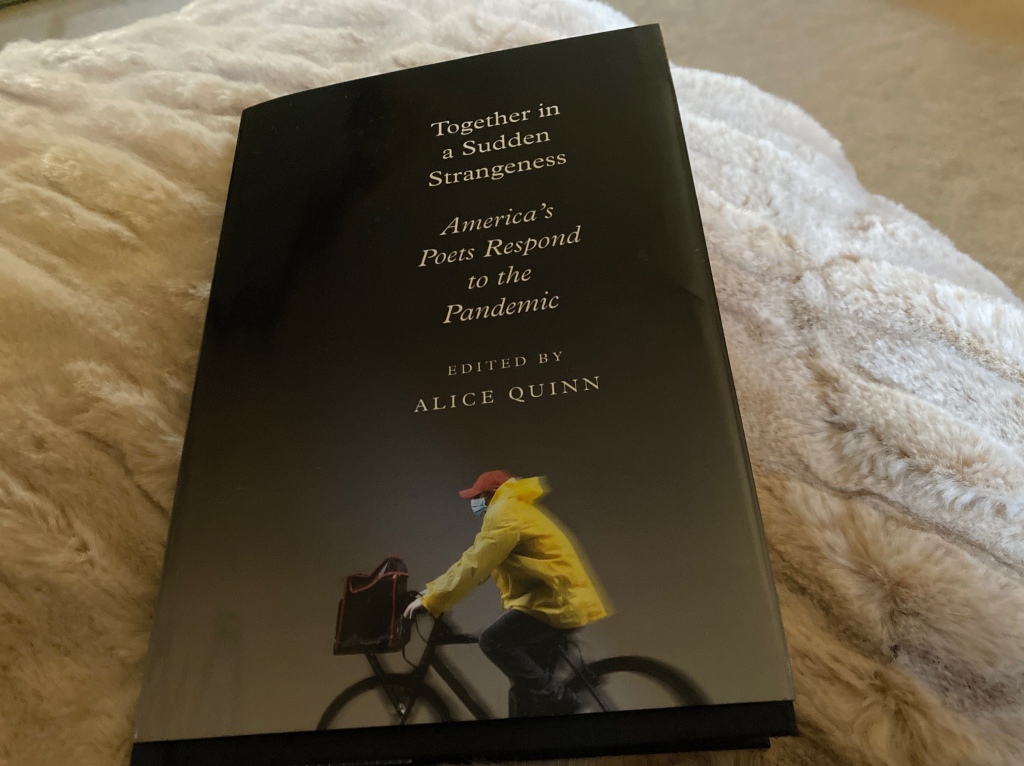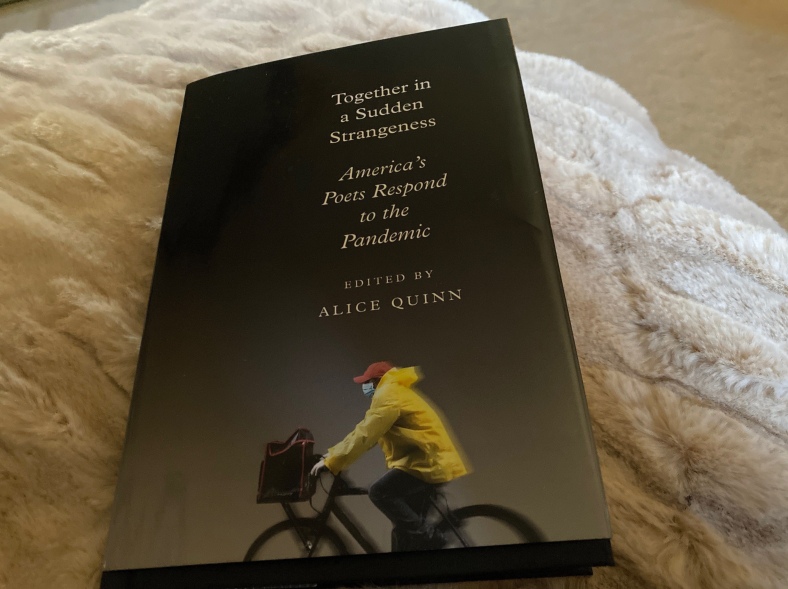Last spring, author Valeria Luiselli accepted the British Rathbone Folio Prize for her novel, ‘Lost Children Archive’. She spoke of the writer’s responsibility, “whether a science-fiction writer, a journalist, a poet, each at their own pace and within their own capacities, to document this moment”.
“We are going to need this narrative fabric, some sort of fabric for us to lay down once we overcome this.”
One expression of this “narrative fabric” is the recently published poetry anthology, ‘Together in a Sudden Strangeness’ edited by Alice Quinn.
The Friday Poem selection for this week is Julia Alvarez’s ‘How Will This Pandemic Affect Poetry?’ As we reimagine our priorities ‘after’, framed by our experience in the ‘before times’ and pandemic isolation, where will art reside?
How Will This Pandemic Affect Poetry?
Will the lines be six feet apart?
Will these hexameters be heroic like Homer’s?
(Will) (each) (word) (have) (to) (be) (masked) (?)
Will there be poetry insecurity?
Will there be enough poetry to go around?
Will poems be our preferred form of travel?
Will we undertake odysseys searching for Ithacas inside us?
Will poetry go viral?
Will its dis/ease infect us?
Will it help build up antibodies against indifference?
Will poems be the only safe spaces where we can gather together:
enter their immense silences
see snakes slithering inside sestinas,
listen to nightingales singing on the boughs of odes –
hark! a lark in the terza rima,
a hawk in a haiku?
What if only poetry will see us through?
What if this poem is the vaccine already working inside you?
April 27 – May 8, 2020
Weybridge, Vermont
‘Together in a Sudden Strangeness: America’s Poets Respond to the Pandemic’
Alice Quinn, editor Alfred A. Knopf, New York 2020









